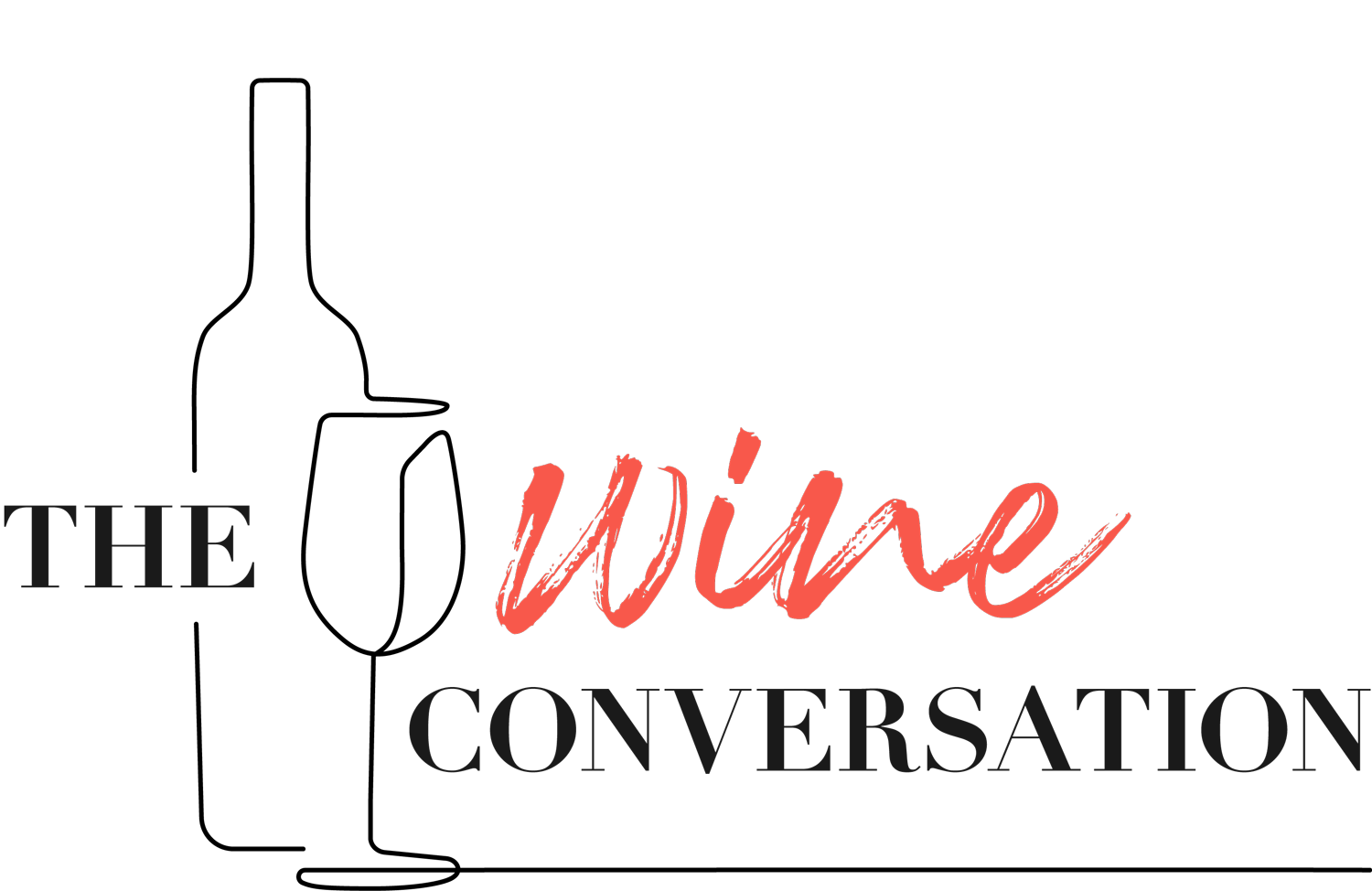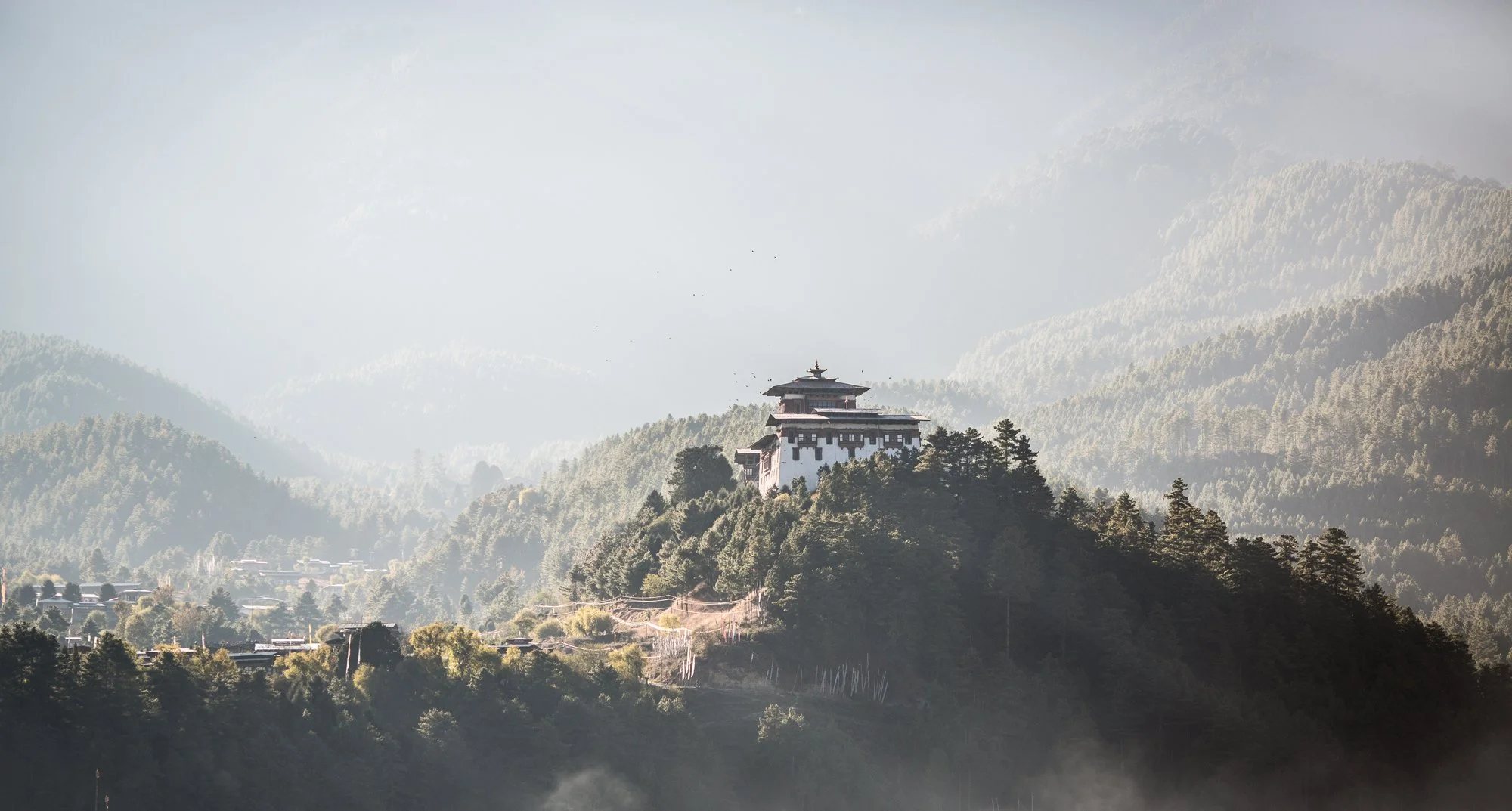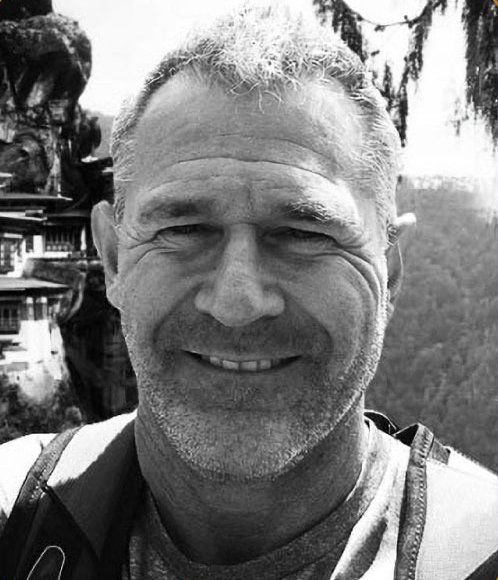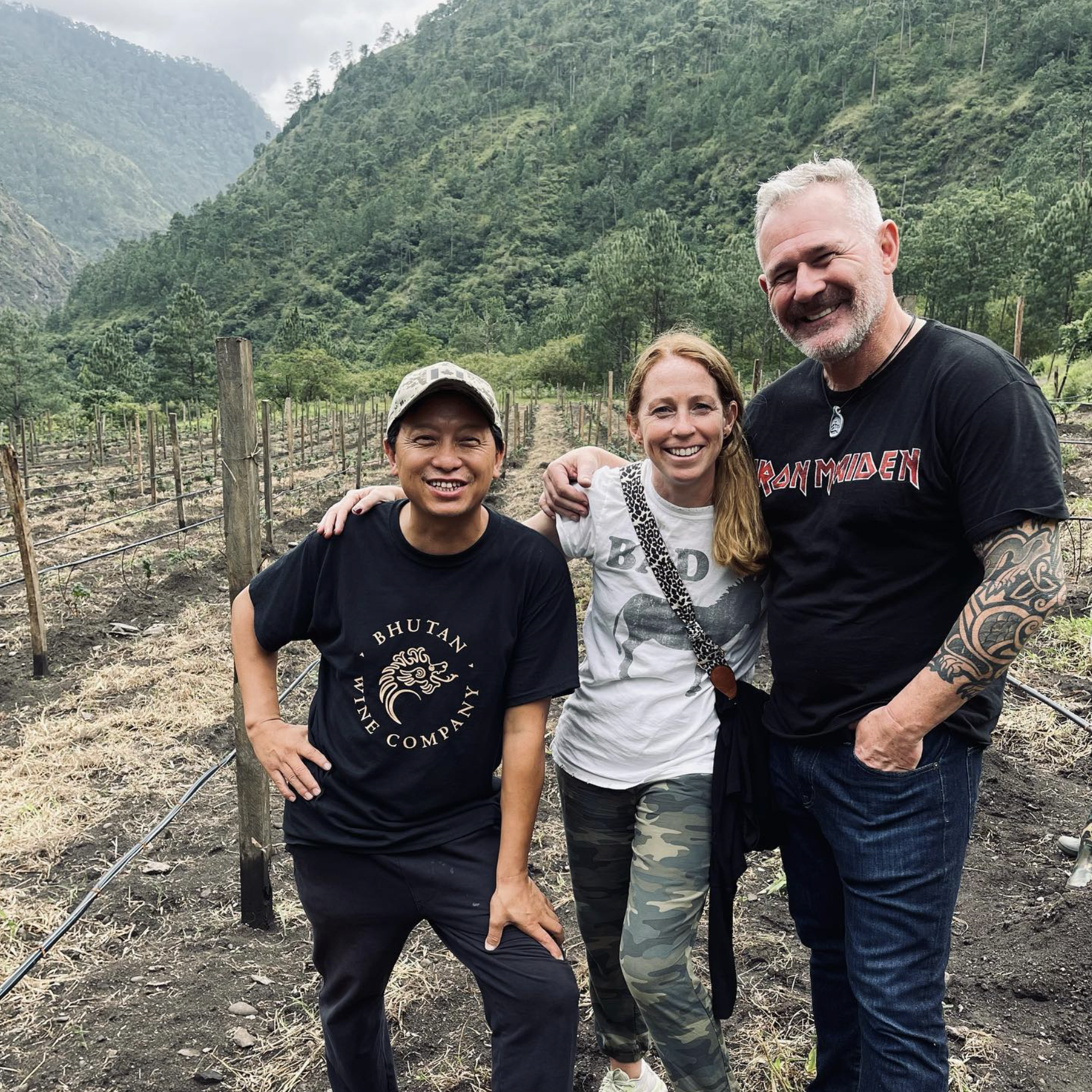▻ Making Wine in Bhutan with Michael Juergens
Elin McCoy in conversation with Michael Juergens
Episode Summary:-
Elephants in your vineyard? Buddhist grape-pickers who won’t kill bugs? Just a few of the challenges Michael Juergens faced when he started the very first winery in Bhutan. Elin McCoy talks to him about what must be the world’s most extraordinary wine venture, and hears his story of how he, an accountant and business consultant who ran marathons, plays drums in a punk-rock band, is a certified sommelier and is studying for his Master of Wine, came to realise his dream of owning a vineyard--except this dream wasn’t his original one – it turned out to be Bhutan, in the Himalayan mountains next to Tibet, not California.
Michael explains how he did not come from a family with a wine background, but how, when his father returned from a business trip to Italy with a bottle of Gattinara and persuaded him to try it, that the switch flicked. Later, he took a familiar route to becoming familiar with wine: as a businessman with an expense account, he had access to trying different types of wine. In 2002, he tried to buy a winery in Temecula, in southern California, but didn’t have the funds, and couldn’t persuade friends to join him in the venture. It was his girlfriend’s dream of visiting Bhutan that sparked his interest in a marathon that was being run there. He applied for both of them, and when accepted was informed by his girlfriend that it wasn’t an island in Indonesia, but a country in the Himalayas.
Michael tells Elin how Bhutan is the only carbon-negative country on the planet and is revered for its sustainable agriculture. “Everything I ate was the best I’d ever had in my life, but where’s the winery? There weren’t any.” During the marathon, he ran through Bhutan’s different terrains, and became convinced that the country should be growing vines. At the dinner after the marathon, he told the local officials that they should plant vines. He returned to California, and started researching, only to find there wasn’t much data, as there are few weather stations in Bhutan. He found a soil scientist in the UK who had spent ten years in Bhutan studying the soil and based on his research wrote a white paper, which he sent off to the officials he had met; there was no response.
Two years later, he returned to Bhutan and competed in another marathon; he was surprised when government officials asked him for a series of meetings – it seems they had all read his paper after all. They told him, “We’re very very interested in this. It very much aligns with the pillars of our gross National Happiness Model. We’re sold this has potential, but we’re not sure what to do next.” Michael enthused by the opportunities told them not to worry as he was a consultant, and could produce a ten-year business plan and suggested drawing up wine regulations. “I was seriously passionate that they should do this,” he tells Elin. He had not envisaged at that stage that he would be involved, but when they told him, “We want to try it. We need a partner. We would like to partner with you to do this,” he replied, “Hell yes, I’m in, what a cool thing.”
““The whole thing is a wild, wild journey.” ”
It wasn’t the first time that someone had considered making wine in Bhutan. Michael tells Elin that back in 1990, John Goelet, who owned Clos du Val in Napa and Taltarni in Australia, sent his winemaker, Bernard Portet, to Bhutan. Goelet was a friend of the Royal Family, but the project never took off. Michael relates why it was not as feasible then as today, explaining how the Bhutan government wants to share Bhutan with the world, and that one of the ways of doing this is exporting higher-value products, which wine neatly falls into, as well as continuing the biodiversity of its country and changing the economic structure for its citizens. Elin questions how easy it was to start, as there is no grape culture in Bhutan, but Michael reveals that there is a culture for rice wine, with every family making their own. The big question was where to plant: “I had every climate zone from jungle up to glacier,” he notes wryly. He undertook a lot of soil analysis with a professor from Cornell University in New York, stomping across fields and digging pits. “Inevitably we concluded there is no possible way to analyse this perfectly, so let’s just try some stuff, so we picked some different aspects, then we imported 11 different varietals and said we are going to try them all in every location. We know a lot are going to fail, some of the locations will fail, we don’t care.” Today, they have 17 varieties planted; one of the original 11, Petit Manseng, surprised Elin. “I love Jurançon,” Michael says, explaining how it has done well in Virginia, which suffers from summer rains, a problem it shares with Bhutan.
One of his initial challenges was getting nurseries to believe he was not running a scam when he mentioned Bhutan. Several wouldn’t even talk to him, but eventually he persuaded one and air-freighted the vines to Bhutan, and put into quarantine to ensure they were virus-free. He is experimenting with hybrids in the south side of the country where it is very tropical, with the idea of being able to harvest two vintages a year. There is a problem, however: “There’s not a lot of viticultural knowledge on how to deal with the elephant in the vineyard.” Which varieties are doing well? Altitude seems to be the key. At 1500 feet, the red Bordeaux varieties are doing spectacularly, at 5000 feet Cabernet Franc and Merlot are doing well, but he has a failure, with Chardonnay. “I can’t get Chardonnay to grow there, not a single vineyard, we’ve not got a single berry.”
What have been the main issues, Elin asks. The lockdown during the pandemic has pushed back the building of the winery and each vineyard has separate problems, one has birds and grape-eating wasps, another has very sandy soils and water problems, another mildew. One day during lockdown, Michael received a WhatsApp message with a picture of a green insect which was eating the grapes. “Bhutan’s a Buddhist country, so we can’t kill anything. I guess we get some workers out to pick them off” was his advice.
Originally the name for the wine was going to be Thunder Dragon, but on reflection Michael decided it should have a Bhutanese name. In the country, there are special monks in charge of naming things. After six weeks they came back to him and said the name was “Ser Kem” which means “the alcohol for the Gods.” The first harvest will be in the summer of 2023 and a special bottling is being planned, along with an offering of NFTs and the opportunity for wine lovers to take part in the first harvest. Funding for the project did not come from the government; the first phase was funded by Michael himself and the second phase by a series of small investors. He is now looking at the third phase and hoping to raise 30-to-40 million dollars with the right partner. He has lined up a winemaker who has experience in Bordeaux and Asia, and hopes in the future to start a cooperage in order to be less reliant on shipping barrels in. He calls it “a wild, wild adventure… I want to capture the essence of Bhutan in a wine bottle and share it with the world. I just don’t know what it’s going to taste like.” It looks as if, very soon, we are about to find out.
Running Order:-
-
0.00 – 16.50
“Bhutan is the only carbon-negative country on the planet and it is revered for its sustainable agriculture.”
– How Michael Juergens grew up in a family not interested in wine.
– Michael’s conversion from Mexican beer to wine.
– Michael’s dream of owning a winery.
– Running a marathon in Bhutan and realising its potential for wine.
– Writing a white paper on why Bhutan should start a wine industry. -
16.51 – 36.00
“I had every climate zone available from jungle to glacier – where to start?”
– Michael returns to Bhutan to run a second marathon after hearing nothing about his white paper.
– Government officials wish to discuss the project and ask to partner with him.
– How John Goelet of Clos du Val sent Bernard Portet to Bhutan in 1990.
– Why the government believes that wine aligns with their “pillars of our gross national happiness model” .
– The rice-wine culture in Bhutan.
– Finding the right vineyard land, trying different altitudes and aspects.
– Difficulty persuading nurseries to sell him vines as they thought it was a scam.
– Shipping the vines to Bhutan by air.
– Experimenting planting hybrids in the south, and the elephant problem.
– Which varieties are doing well and which aren’t. -
36.01 – 56.02
“Bhutan is a Buddhist country, so we can’t kill anything.”
– The vineyard locations near the Government agricultural centres.
– Plans to build the winery and the country’s lockdown during the pandemic.
– The challenges of each vineyard being different.
– The first harvest summer 2023 and the plans for the launch.
– The funding of the project.
– The dream to start a cooperage and become more self-reliant.
– Michael’s vision for the winery in Bhutan.
RELATED POSTS
Keep up with our adventures in wine








In our first En Primeur Bordeaux 2024 podcast Jane Anson talks to Sarah Kemp about the weather conditions that forged the 2024 vintage in Bordeaux.